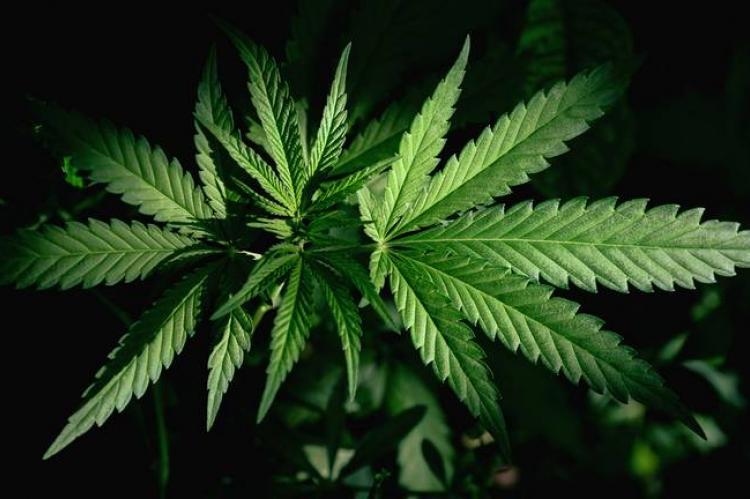Hemp bill could have big implications for Florida farmers
A bill addressing hemp farming has turned into a round of end-of-session horse trading, where the legislative chambers have gone back and forth about whose version of a bill should come out on top.
In this fight, it all has to do with seeds.
Following the passage of the 2014 federal farm bill, hemp growing became allowed under certain circumstances by research institutions and state departments of agriculture..
Florida A&M University and the University of Florida were authorized to partner with industry experts to develop the perfect seed for Florida’s wide-ranging climate and unique soil makeup.
The 2018 farm bill removed prohibitions on industrial hemp in place since 1937 and authorized states to create hemp programs beyond the university research setting
In 2019, the Legislature passed a broader law that allows the Department of Agriculture and Consumer Services to create a state hemp program.
This year, a wide-ranging hemp bill by Sen. Bill Montford, D-Tallahassee, included a provision stating that licensees “may only use hemp seeds and cultivars certified by a certifying agency or a university conducting an industrial hemp pilot project” pursuant to state law. When the bill went to the House, Rep. Brad Drake, R-Eucheeanna, filed an amendment to get rid of the provision, therefore opening up seed sales and creating an unexpectedly tense legislative back-and-forth.
Montford has said his bill is both cautious regarding the nascent industry but also supportive of farmers like those in the Panhandle who lost timber farms in Hurricane Michael. He’s said before that “hemp could be the savior of the economy in North Florida.”
Montford said opening up the seed sales to vendors beyond the university pilot programs could have a “long range of financial implications.”
“My concern is changing rules mid-stream,” he said.
DOWN TO THE LAST DAY
On Friday — the last day the Legislature could pass policy this year — Montford rejected the House’s amendment to his bill and sent it back to the lower chamber, where it awaits being heard. If not, it dies.
The 2018 farm bill removed prohibitions on industrial hemp in place since 1937 and authorized states to create hemp programs beyond the university research setting
In 2019, the Legislature passed a broader law that allows the Department of Agriculture and Consumer Services to create a state hemp program.
This year, a wide-ranging hemp bill by Sen. Bill Montford, D-Tallahassee, included a provision stating that licensees “may only use hemp seeds and cultivars certified by a certifying agency or a university conducting an industrial hemp pilot project” pursuant to state law. When the bill went to the House, Rep. Brad Drake, R-Eucheeanna, filed an amendment to get rid of the provision, therefore opening up seed sales and creating an unexpectedly tense legislative back-and-forth.
Montford has said his bill is both cautious regarding the nascent industry but also supportive of farmers like those in the Panhandle who lost timber farms in Hurricane Michael. He’s said before that “hemp could be the savior of the economy in North Florida.”
Montford said opening up the seed sales to vendors beyond the university pilot programs could have a “long range of financial implications.”
“My concern is changing rules mid-stream,” he said.
DOWN TO THE LAST DAY
On Friday — the last day the Legislature could pass policy this year — Montford rejected the House’s amendment to his bill and sent it back to the lower chamber, where it awaits being heard. If not, it dies.
Experts in the field say that opening up sales could lead to an infiltration of seeds from other states or countries that may be not conducive to growing in Florida or be “hot,” with THC content over the legal limit.
Jerry Fankhauser, the lead oversight manager for the University of Florida’s hemp pilot project, said the reason for certified seeds is so that growers could have some protection that they would be buying a quality product.
“It was an attempt to bring some credibility into seed and plant transactions,” Fankhauser said.
But they also say universities participating in the pilot program may not be able to keep up with demand once licenses are issued.
They would have to develop fees, secure internal approval to hire employees and decide how to use existing greenhouses. The Department of Agriculture and Consumer Services is gearing up to hand out planting permits next month, about 3,000 of them.
“The pilot project-approved process may bring some credibility, but it takes time,” Fankhauser said. “I think UF could ramp up, but how quickly?”
On a Thursday conference call held by the Department of Agriculture’s hemp advisory council, one of the department’s attorneys called the back-and-forth “some horse trading.”
“Given the certified seed issue, we’ve made some suggested revisions,” said Allan Charles, the attorney.
The day prior, Agriculture Commissioner Nikki Fried perched near Drake’s desk on the House floor. But it is unclear where her department stands on the legislation.
A spokesman for Fried declined to disclose her stance on the legislation. Holly Bell, the state’s cannabis director who oversees the hemp program, could not be made available for comment. She declined to speak with a reporter when approached in person.
Rep. Ramon Alexander, D-Tallahassee, said he and the black caucus have “heartburn” over how the bills are playing out. FAMU, one of the historically black colleges and universities, was one of the first two hemp pilot programs approved to grow and test seeds.
“We’ve had conversations with [the Department of Agriculture] ... we want to make sure those investments that have been made by our state universities, that there’s a return on that investment,” he said in debate Wednesday “There are a lot of unanswered questions. I do have significant concerns.”
- Log in to post comments

